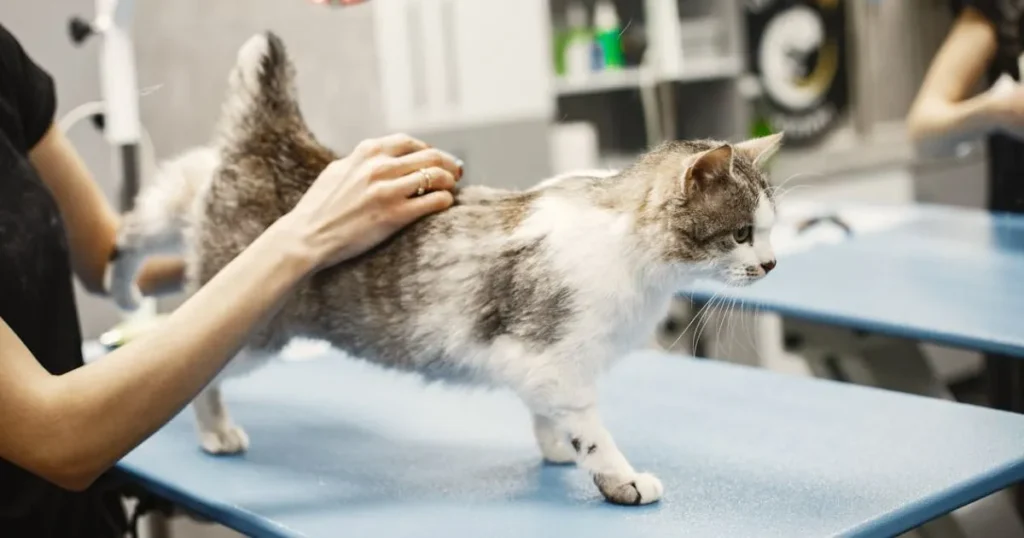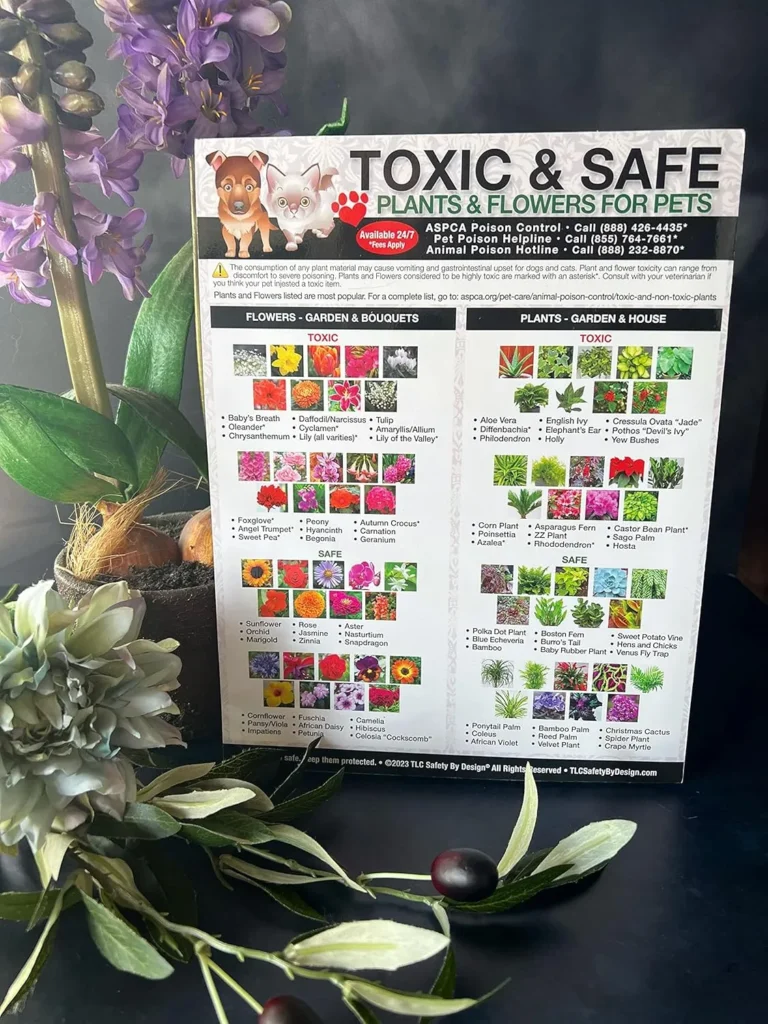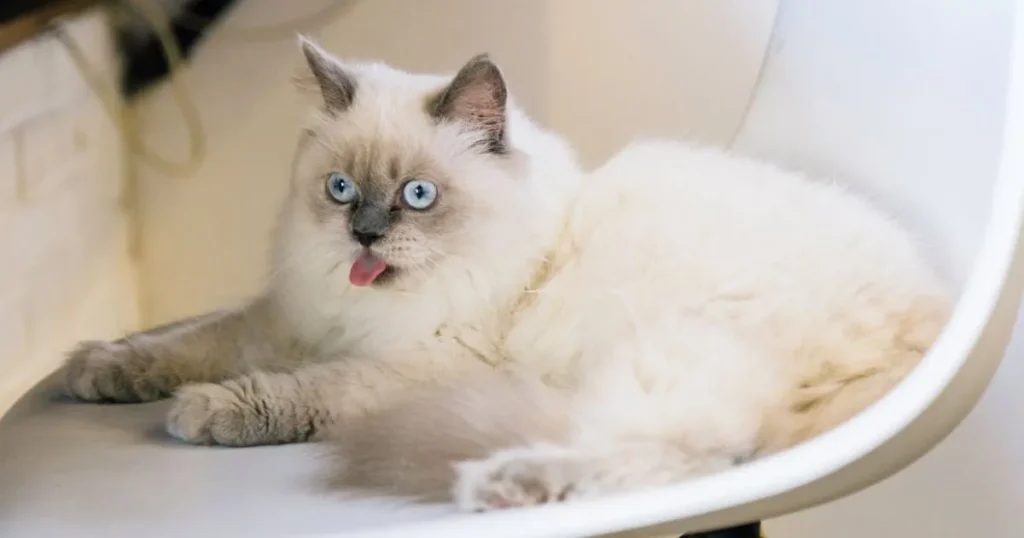As a devoted cat parent, the thought of your cat getting poisoned is scary. Your cat’s health is very important. Knowing how to spot poisoning and act fast can save their life.
Cats are curious and might get poisoned at home. They can’t break down some drugs and hide signs of illness. This makes poisoning in cats harder to spot than in dogs.
Cats can get poisoned in many ways. They might eat something toxic, breathe in harmful gases, or touch chemicals. When they groom, they can also swallow toxins from their fur.
Understanding Cat Poisoning
Cats’ Vulnerability to Toxic Substances
Cats are curious and may get poisoned at home. Their small size and inability to break down drugs make poisoning hard to spot. Unlike dogs, cats often hide when they’re sick, which can delay getting help.
Cats can get poisoned in many ways. They might eat something toxic, breathe in harmful gases, or touch chemicals on their skin. When they groom, they can swallow the toxin, making things worse.
Cats are more likely to get poisoned because of their cat poisoning vulnerabilities. Their feline susceptibility to toxins comes from being small and not breaking down drugs well. They also hide when they’re sick, which makes poisoning harder to catch.
Knowing why cats are at risk of poisoning is key. Pet owners need to understand the reasons cats are prone to poisoning and the factors contributing to cat poisoning. This knowledge helps keep cats safe at home.
| Toxin | Symptoms in Cats |
|---|---|
| Aspirin | Anorexia, vomiting, gastric hemorrhage, anemia, hyperthermia |
| Paracetamol | Brown gums, difficulty breathing, blood in urine, jaundice, swelling |
| Ibuprofen | Vomiting, depression, anorexia, diarrhea |
| Antifreeze | Drunken appearance, vomiting, depression, hypothermia, coma, potential death |
| Lead | Vomiting, abdominal pain, reduced appetite, diarrhea, unbalanced walking, convulsions, blindness, tremors |
| Rodenticides | Pale gums, depression, weakness, reduced respiratory effort, coughing, unbalanced walking |
It’s important to know about cat poisoning vulnerabilities and feline susceptibility to toxins. This helps us understand why cats are at risk of poisoning. With this knowledge, we can keep our cats safe at home.
Common Ways Cats Can Get Poisoned
Cats are small and can get very sick from tiny amounts of poison. They don’t usually eat bad food, but eating a poisoned mouse can be deadly. Cats are very sensitive to harmful substances.
Signs of poisoning in cats vary by the poison and how they get it. Quick action is key when treating a poisoned cat. The severity of poisoning depends on how much poison they eat.
- Lily Toxicity: Even a little bit of toxic lily can cause kidney failure in cats.
- Household Cleaners: Cats can get sick from eating cleaning products, leading to serious health issues.
- Dryer Dangers: Clothes dryers can be deadly for cats because they can get trapped inside.
- Antidepressant Poisoning: Human antidepressants can make cats very sick, causing a range of symptoms.
- Alcohol Poisoning: Even a little alcohol can harm cats, leading to serious health problems.
- Caffeine Toxicity: Caffeine can make cats very sick, causing a range of symptoms.
| Toxic Substance | Potential Symptoms in Cats |
|---|---|
| Insecticides | Vomiting, diarrhea, lethargy, tremors, seizures |
| Over-the-Counter Pain Medications | Stomach ulcers, kidney failure |
| Onions, Garlic, Chives | Anemia, vomiting, diarrhea, lethargy, pale gums |
| Chocolate | Vomiting, diarrhea, muscle tremors, seizures |
| Grapes and Raisins | Kidney failure, vomiting, diarrhea, lethargy |
| Macadamia Nuts | Vomiting, diarrhea, weakness, tremors, hyperthermia |
| Raw Yeast Dough | Vomiting, diarrhea, abdominal pain, alcohol poisoning |
| Undercooked Meat | Vomiting, diarrhea, fever, lethargy |
| Xylitol | Vomiting, diarrhea, lethargy, seizures, liver failure |
These are just a few ways cats can get poisoned. It’s important to watch out and keep your cat safe from these dangers.
Symptoms of Poisoning in Cats
It’s key to spot poisoning signs in cats fast to get them help. The signs can change based on the toxin. Yet, there are common signs a cat might have been poisoned.
One early sign is loss of appetite. Cats might also drool a lot, vomit, or have diarrhea. This is the body trying to get rid of the poison.
Neurological signs like incoordination, tremors, seizures, lethargy, or even coma can happen too.
Respiratory issues like coughing, sneezing, panting, or trouble breathing can also show poisoning. Skin problems like redness, inflammation, burns, and swelling might appear as well.
- Gastrointestinal signs like drooling, lack of appetite, gagging, vomiting, and diarrhea
- Neurological signs including hiding, hyperexcitability, incoordination, tremors, seizures, lethargy, or coma
- Respiratory signs such as coughing, sneezing, panting, or difficulty breathing
- Skin signs including redness, inflammation, burns, and swelling
- Liver injury that causes signs such as stomach upset, dehydration, jaundice, and weight loss
- Kidney injury that causes signs including stomach upset, halitosis (bad breath), changes in thirst and urination, lethargy, and weight loss
- Anemia, which may include signs such as yellow or pale gums, lethargy, weakness, heavy breathing, and hiding
Sometimes, the signs aren’t clear right away. Cats might hide their pain. If you think your cat has been poisoned, call your vet fast.
“Poisoning is one of the most common conditions claimed through cat insurance, highlighting the importance of being vigilant about potential toxins in your feline’s environment.”
Immediate Steps if Poisoning is Suspected
If you think your cat has been poisoned, act fast. Call your vet or the Pet Poison Helpline at 1-800-213-6680. They can tell you what to do first and if your cat needs to see a vet right away.
For cats that seem upset or aggressive, wrap them in a towel. Then, put them in a safe box or crate. Keep your cat inside for 24 hours after possible poisoning. If told to watch your cat at home, make sure they are in a quiet, warm place. Get vet help right away if your cat shows poisoning signs.
Seeking Veterinary Assistance
Getting your cat to the vet quickly is key if you think they’ve been poisoned. Your vet or the Pet Poison Helpline can guide you on what to do first. They’ll tell you if your cat needs urgent care. Don’t wait, as poisoning can be very serious for cats.

Time is critical when treating poisoning in cats. Quick action and following vet advice can help your cat recover fully. Always be ready to get emergency care if you think your cat has been poisoned.
Top Household Toxins for Cats
Cats are curious, but their small size puts them at risk from common household dangers. The Pet Poison Helpline reports that lilies, chocolate, onions, chives, garlic, and vitamin D3 are top cat poisons. In 2023, lily poisoning was the leading cause of calls, as both true lilies and daylilies can be deadly.
Other harmful substances for cats include ibuprofen, Peruvian lily, amphetamine compounds, and carprofen. These items can be very dangerous if cats eat them. Keeping these items out of reach is key to keeping your cat safe.
| Household Toxin | Fatality Rate |
|---|---|
| Antifreeze or Ethylene Glycol | 96% |
| Rodent Poisons | Over 90% |
| Human Medications | 85% |
| Lead | 70% |
| Essential Oils | 60% |
| Chocolate | 50% |
| Household Cleaners | 40% |
| Insecticides and Fertilizers | 60% |
It’s important to keep harmful items away from your cat. If you think your cat has ingested something toxic, call your vet right away.
Poisoning from Plants
Toxic and Non-Toxic Plant Species
Cats are naturally curious, which can sometimes put them in danger around plants. Many common plants can be toxic or even deadly to cats. It’s important to know which plants are risky to keep your cat safe.
True lilies, like Tiger and Asiatic lilies, are very dangerous for cats. Even a small amount can cause severe kidney failure. If your cat has been near true lilies, get them to the vet right away.
But not all plants called lilies are as dangerous. Peace lilies and Calla lilies can upset a cat’s stomach but don’t usually cause kidney failure.
Other plants that can harm cats include:
- Rhododendrons and azaleas, which can cause vomiting, diarrhea, weakness, and even coma
- Oleander, causing gastrointestinal distress, abnormal heart rhythms, and potential death
- Sago palms, with every part of the plant being severely toxic and potentially fatal
- Daffodils, containing toxic alkaloids that can result in vomiting, diarrhea, and cardiac issues
- English ivy, leading to gastrointestinal distress and excessive drooling
Knowing which plants are safe is key. There are many non-toxic plants that can decorate your home without harming your cat. Always check with your vet or a plant guide to find out which plants are safe.

“Curiosity may have killed the cat, but it’s the plants that can do the real damage.” – Feline Plant Expert, Dr. Kitty Claw
Human Foods That Can Poison Cats
We love to share our meals with our feline friends. But, many common human foods are toxic and dangerous for cats. Foods like chocolate, caffeine, onions, and grapes can be harmful.
Chocolate, especially dark and baking chocolate, can harm a cat’s heart and cause seizures. Caffeine in coffee, tea, and energy drinks can make cats restless and shake. Onions and garlic can damage a cat’s red blood cells, leading to anemia.
Grapes, raisins, and Zante currants can harm a cat’s kidneys. Macadamia nuts and walnuts can make cats tired, vomit, and overheat.
| Toxic Food | Symptoms of Poisoning |
|---|---|
| Chocolate | Abnormal heart rhythm, tremors, seizures, death |
| Caffeine | Restlessness, rapid breathing, muscle tremors |
| Onions and Garlic | Damage to red blood cells, anemia |
| Grapes, Raisins, Zante Currants | Potential kidney damage |
| Macadamia Nuts, Walnuts | Lethargy, vomiting, overheating |
Your cat’s safety is the most important thing. If you think your cat ate something bad, call your vet or the Pet Poison Helpline fast. Being careful can keep your cat safe from these human foods toxic to cats.
Medications and Topical Products
Over-the-Counter and Prescription Risks
Cats can face serious health risks from human medications. Over-the-counter and prescription drugs can be deadly. Non-steroidal anti-inflammatory drugs (NSAIDs) like ibuprofen and naproxen are especially dangerous.
Cats can’t break down these drugs well. This can cause kidney failure and stomach ulcers, even in small amounts.
Acetaminophen, found in Tylenol, is also very toxic to cats. Just one tablet can be fatal. It can cause severe anemia, breathing problems, swelling, and liver failure.
Some veterinary NSAIDs can be dangerous too. They can cause problems if given too much or for too long.
| Medication | Potential Toxic Effects in Cats |
|---|---|
| Ibuprofen | Kidney failure, stomach ulcers |
| Acetaminophen | Severe anemia, breathing issues, swelling, liver failure |
| Antidepressants (Prozac, Zoloft, Effexor, Cymbalta) | Highly poisonous, can cause various medical issues |
| Prescription NSAIDs | Kidney failure, stomach ulcers if given excessively |
Topical products like minoxidil and household disinfectants can also harm cats. If cats ingest them or absorb them through their skin, they can get sick. Symptoms include lethargy, vomiting, skin/eye irritation, and breathing problems.
It’s very important to keep all human medications and topical products away from cats. This prevents them from getting sick from accidental ingestion or skin absorption.
Insecticides and Rodenticides
Protecting your cats from insecticides and rodenticides is key. These products can be insecticides toxic to cats and rodenticides dangerous for felines. They pose a big risk to their health.
Dog-specific insecticides with pyrethroids, like permethrin, are very harmful to cats. They can cause serious problems if cats get them on their skin or eat them. Always check the labels and talk to your vet before using topical flea products harmful to cats or other household pesticides risky for cats.
Pet-unsafe pest control products in your home and garden can also be a problem. They can cause mild to severe symptoms. It’s important to have the packaging ready when you call the vet or a pet poison helpline. This helps them figure out what to do next.
| Insecticide Ingredients | Rodenticide Ingredients |
|---|---|
| Pyrethroids (e.g., permethrin) | Anticoagulants |
| Organophosphates | Zinc phosphide |
| Carbamates | Bromethalin |
| Plant-derived insecticides | Cholecalciferol |
When it comes to keeping your cats safe, be careful. Watch out for insecticides toxic to cats and rodenticides dangerous for felines in your home. This way, you can protect your cats from harm.
Symptoms of Poisoning in Cats
As pet owners, knowing the signs of poisoning in cats is vital. The symptoms can vary based on the toxin. Spotting these signs early is key to treating your cat quickly and effectively.
Common signs of poisoning in cats include:
- Gastrointestinal issues like drooling, lack of appetite, and vomiting
- Neurological symptoms such as hiding and hyperexcitability
- Respiratory problems like coughing and difficulty breathing
- Skin irritation and swelling
- Liver injury signs like stomach upset and jaundice
- Kidney damage symptoms like bad breath and lethargy
- Anemia signs like yellow gums and weakness
The severity of these symptoms can vary. Quick veterinary care is essential. If you suspect poisoning, call a pet poison hotline or your vet right away.
Cats are at risk from even small amounts of toxins. Fast veterinary care is crucial for recovery.
| Statistic | Value |
|---|---|
| Lead toxicity threshold in cats | 10 to 15 mg/kg when ingested at once |
| Chronic lead poisoning in cats | As low as 5 mg/kg per day |
| Blood lead levels confirming toxicosis | 0.6 ppm |
| Recovery time with prompt treatment | 24 to 48 hours |
“Cats are known for being picky eaters, making them unlikely to consume poisonous food unless it is hidden in their meals.”
Conclusion
Cats are naturally curious and can get poisoned at home. Their small size and hidden symptoms make it harder to notice. This can delay getting them the help they need.
Cats can get poisoned in many ways. They might eat something toxic, breathe in harmful gases, or touch harmful chemicals. Each method can cause different symptoms.
The signs of poisoning in cats vary. They can have stomach problems, act strangely, have breathing issues, or show skin reactions. If you think your cat has been poisoned, call your vet or a 24/7 animal poison hotline like Pet Poison Helpline at 1-800-213-6680 right away.
Knowing about cat poisoning can help keep your pet safe. Make your home safe for cats, learn about common dangers, and act fast if you suspect poisoning. This can greatly improve your cat’s health and happiness.
FAQ
What makes cats vulnerable to poisoning?
Cats are curious and may get poisoned at home. Their small size and inability to break down some drugs make them more at risk. They also hide signs of illness, which can delay getting help.
How can cats be poisoned?
Cats can get poisoned in several ways. They might eat something toxic or breathe in harmful gases. They can also get poisoned through their skin, especially when they groom.
What are the symptoms of poisoning in cats?
The symptoms of poisoning in cats vary. They can have stomach problems, brain issues, breathing troubles, skin reactions, and damage to their liver or kidneys. They might also lose blood.
What should I do if I suspect my cat has been poisoned?
If you think your cat has been poisoned, act fast. Call your vet or Pet Poison Helpline at 1-800-213-6680. Get your cat to a vet as quickly as you can.
What are the top household toxins for cats?
The top cat toxins in 2023 include Lilies, Chocolate, Onions, and Garlic. Other dangerous items are Vitamin D3, Ibuprofen, and Tulips. These are based on Pet Poison Helpline data.
Which plants are toxic to cats?
True lilies and daylilies can harm cats’ kidneys. True lilies include Tiger and Easter lilies. But, Peace lilies and Calla lilies are safe for cats.
What human foods are dangerous for cats?
Chocolate is a big risk for cats, as is Onions and Garlic. Grapes and Raisins can also harm them. These foods can cause serious health issues.
Are human medications and topical products safe for cats?
Medicines like NSAIDs and Tylenol are very dangerous for cats. Even a small amount can be deadly. Dog insecticides, like permethrin, are also toxic to cats.

TLC Safety By Design Premium Toxic and Safe Plants & Flowers Poison for Pets Dogs Cats Emergency Large Format Veterinarian Approved Refrigerator Safety Magnet 8.5” x 11”

